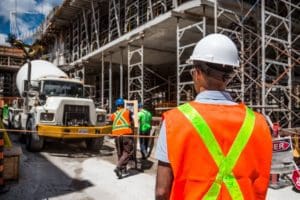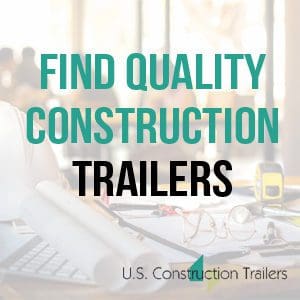
Top Tips for Staying Compliant on the Job Site
It’s crucial to comprehend what compliance means in the context of construction. Compliance refers to ensuring that all practices, actions, and tasks performed on a job site are in line with established regulations, standards, and laws. These can range from local zoning regulations and building codes to environmental standards and safety protocols.
The Importance of Staying Compliant
Falling short of compliance doesn’t just carry the threat of legal repercussions. Non-compliance can lead to costly project delays, increased project costs, and even harm the reputation of the company in question. Moreover, ensuring compliance often correlates with maintaining high safety standards, ensuring the well-being of all workers on site.
The construction industry, by nature, is a complex tapestry of projects that involve numerous stakeholders, multifaceted tasks, tight schedules, and significant financial outlays. Given this intricacy, it becomes imperative to ensure every facet of a construction project adheres to established standards and regulations. But why is compliance on the job site so crucial?
1. Safety First and Foremost: Perhaps the most paramount reason is the safety of workers and all personnel involved. Non-compliance can result in serious injuries or fatalities, given the hazardous nature of many construction tasks. Adherence to safety regulations not only ensures that workers are protected but also minimizes the risk of project delays and potential legal suits resulting from accidents.
2. Financial Ramifications: Violations of compliance regulations often come with hefty penalties and fines. Moreover, non-compliance can result in a halt in operations until issues are resolved. The downtime can lead to significant financial losses, especially if workers are on the payroll but unable to progress with their tasks.
3. Protecting Company Reputation: In the age of digital communication and online reviews, a single non-compliance incident can tarnish a company’s reputation, possibly for years. Construction companies rely on their reputations to secure future contracts and maintain good relationships with stakeholders. A reputation for cutting corners or flouting regulations can deter potential clients and partners.
4. Legal Repercussions: Beyond fines, companies might find themselves in legal hot water if they’re found to be consistently or grossly non-compliant. This can lead to lengthy legal battles, further financial outlays, and potential criminal charges for company leaders in extreme cases.
5. Ensuring Quality: Many compliance regulations are established based on industry best practices. Adhering to these standards ensures that the construction project’s outcome meets quality expectations. This is crucial for the longevity of the structure, the satisfaction of stakeholders, and the overall success of the project.
6. Environmental Considerations: Modern construction projects often have to consider their environmental impact. There are regulations in place to protect local ecosystems, manage waste, reduce emissions, and ensure sustainable practices. Staying compliant ensures that construction companies are doing their part in preserving the environment and reducing their carbon footprint.
7. Efficiency and Productivity: While it might seem that adhering to numerous regulations would slow down a project, in the long run, it often leads to more efficiency. When everyone knows the rules and follows best practices, there’s less rework, fewer mistakes, and a smoother operational flow.
8. Business Continuity and Growth: Repeated offenses or major non-compliance issues can lead to a company’s license being revoked, essentially halting operations. On the flip side, a track record of consistent compliance can open doors to larger, more lucrative projects and opportunities, propelling the company’s growth.

Compliance is not just a legal necessity but a cornerstone for the success and sustainability of any construction enterprise. By ensuring that every task, no matter how small, is in line with industry standards and local regulations, construction companies lay a foundation of trust, quality, and professionalism that benefits all involved.
Why a Secure Building is Essential for Compliance
- Centralized Record Keeping: With myriad permits, licenses, inspections, and other documentation integral to construction projects, a dedicated space ensures that all essential paperwork is readily available. An office trailer, for example, serves as a secure storage location, minimizing the risk of important documents being misplaced or damaged by the elements.
- Dedicated Space for Meetings and Audits: External inspectors, auditors, or regulatory officials may visit the site. Having an on-site office provides a quiet and professional space for discussions, reviews, and necessary walkthroughs.
- Accessible Training Material: Safety and operational trainings are a part of maintaining compliance. An office trailer can be equipped with resources, such as manuals, videos, and other training materials, ensuring that they’re accessible for on-the-spot training or refreshers.
- Immediate Addressal of Issues: When there’s a question about a certain regulation or if a potential compliance issue arises, the site manager or supervisor can quickly retreat to the office trailer to consult regulations, communicate with superiors, or take whatever steps are necessary to address the situation.
- Safety Equipment Storage: Many compliance standards relate to the safety equipment used on site. While not all gear will be stored in an office trailer, it can serve as a central location for certain safety devices, logs, or even surveillance systems that monitor the site for compliance.
A Proactive Approach to Compliance
It’s always better to be proactive rather than reactive when it comes to regulatory compliance. This means regularly reviewing compliance standards, training workers, and ensuring that all activities align with required regulations. An office trailer on the job site acts as a reminder of the importance of compliance, serving as a hub for all compliance-related activities and discussions.


Key Areas to Ensure Compliance on Your Jobsite
For construction industry professionals, understanding and maintaining compliance is an ongoing process that requires diligence and awareness. While regulations can vary by region and the nature of the work, certain areas universally demand careful attention. Let’s explore some of these pivotal aspects:
Health and Safety Protocols:
- Worker Protection: Ensure that all workers have the necessary protective equipment such as hard hats, safety vests, and protective eyewear. It’s also essential to conduct regular safety training sessions and drills.
- Hazard Communication: Maintain up-to-date Material Safety Data Sheets (MSDS) for any chemicals used onsite and ensure that all workers are trained to handle them properly.
Equipment and Machinery:
- Maintenance: Regular inspections and maintenance of machinery can prevent malfunctions that could lead to injuries.
- Operation Training: Ensure that only qualified and trained individuals operate heavy machinery or specialized equipment.
Environmental Standards:
- Waste Management: Proper disposal methods for both hazardous and non-hazardous waste must be followed.
- Emissions and Discharges: Monitor and control emissions from machinery and any onsite processes to ensure they’re within permissible levels.
Building Codes and Standards:
- Quality Assurance: Regular checks and inspections must be carried out to ensure that the structure being built adheres to regional building codes and industry standards.
- Materials: All materials used should meet or exceed the standards set forth by local and national regulations.
Labor Laws and Rights:
- Fair Wages: It’s essential to ensure that all workers are paid at least the minimum wage and receive any overtime they’re entitled to.
- Working Hours: Adhere to regulations regarding the maximum number of hours an employee can work in a day or week.
Accessibility:
- Universal Design: Construction sites must ensure that their completed projects comply with accessibility standards, making buildings and spaces usable by people with disabilities.
- Signage: Appropriate signs should be in place, indicating accessible routes, facilities, and amenities.
Noise and Vibration Control:
- Monitoring: Use decibel meters to regularly monitor noise levels, ensuring they remain within permissible levels, especially if working in residential areas.
- Vibration Management: When using machinery that causes ground vibration, make sure it doesn’t adversely affect neighboring structures or habitats.
Licensing and Permits:
- Documentation: Ensure that all necessary licenses, permits, and approvals are obtained before starting a project.
- Renewals: Keep track of expiration dates and renew necessary permits and licenses in a timely fashion.


Emergency Response Plans: Having detailed plans for emergencies such as fires, medical incidents, or natural disasters is vital. These should be communicated to all workers, and regular drills should be conducted.
Data and Privacy Protection: If your jobsite uses digital tools or collects data, ensure that there are measures in place to protect this information and that you comply with any data protection regulations relevant to your region.
In the rapidly evolving landscape of the construction industry, staying compliant is not just about adhering to the law. It’s about building trust with clients, protecting workers, and delivering projects that stand the test of time both in quality and safety. Ensuring compliance in these key areas will not only help construction businesses avoid costly penalties and legal battles but also foster a culture of excellence and responsibility.
Building a Culture of Compliance
Beyond the hard regulations and checks, cultivating a culture of compliance within the organization can serve as a backbone to the above-mentioned measures. Here’s how to ensure a steadfast approach to compliance at all levels:
Regular Training
Continuous education is fundamental. Workers, supervisors, and managers should undergo training that keeps them up to date with the latest regulations, techniques, and best practices. These sessions should also reinforce the company’s commitment to compliance and underscore its importance.
Clear Communication
Establish open channels where employees can report potential violations or concerns without fear of retribution. This promotes transparency and allows for quicker rectification of potential issues.
Technology Integration
Leveraging technology can be a game-changer. Implement software that automates compliance checks, tracks training sessions, or monitors emissions in real-time. Such tools not only streamline processes but also ensure more accurate and timely compliance.
Feedback Mechanisms
Encourage feedback from staff regarding compliance procedures. Those on the ground often have invaluable insights into practical challenges and potential solutions that might not be immediately evident at the managerial level.



Partnering with Experts
Engage with consultants or industry experts who can provide a third-party perspective on compliance. They can identify gaps, suggest improvements, and offer advice based on industry benchmarks.
Documentation
Maintaining detailed records is paramount. This not only aids in ensuring that all procedures and checks are being carried out correctly but also provides necessary documentation in case of audits or disputes.
Regular Audits
In addition to mandatory inspections, carry out self-audits. This proactive approach can pinpoint potential problems before they become significant issues.
Stakeholder Engagement
Engage with all stakeholders, from suppliers to clients, to ensure they align with your commitment to compliance. This creates a unified front and often facilitates smoother project execution.
Leading by Example
Leadership plays a crucial role in setting the tone for compliance. When senior management actively participates in training, follows procedures, and underscores the importance of regulations, it cascades down to every member of the organization.
Continuous Improvement
The world of construction and its associated regulations is dynamic. Adopting a mindset of continuous improvement ensures that the company remains agile, adapting to changes, and always striving to enhance its compliance measures.
By embracing a holistic approach to compliance that melds strict regulatory adherence with a culture of commitment and continuous improvement, construction businesses can not only protect themselves from potential legal pitfalls but also enhance their reputation in the industry. This often translates to increased trust from clients, smoother project executions, and even potential business growth opportunities.
In the ever-evolving landscape of construction, it’s imperative for companies to stay ahead of the curve when it comes to compliance. While the office trailer is just one component of a comprehensive compliance strategy, its centralized role cannot be underestimated. So, while US Construction Trailers specializes in providing robust office trailers, our primary goal is to assist construction businesses in achieving their broader objectives, one of which is undoubtedly ensuring impeccable compliance. Should you need assistance with office trailers we are here to help today.
COMPARE QUOTES
Leave a Reply